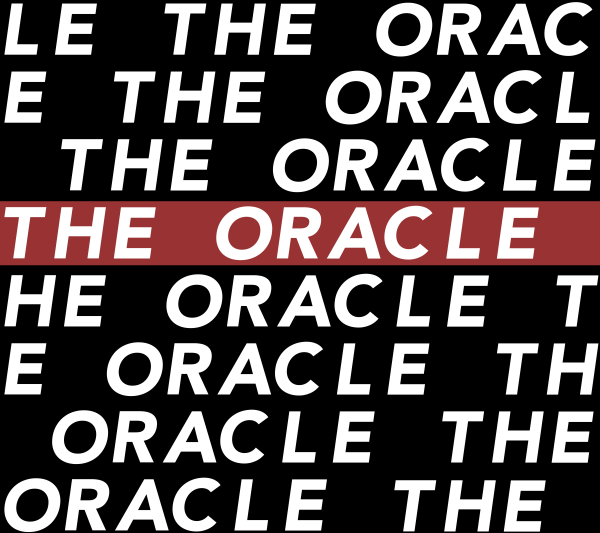Misconceptions with humanities
Despite the conception that majoring in Humanities can be a waste of time, and a lack of effort, studies show that humanities hirees are actually fairly essential.
More stories from Brianna Skildum
There are myths about majoring in the humanities that often make people afraid to pursue degrees in things like art history, English , philosophy, religion, languages, and many other studies. These myths claim things that are negative towards the studies of humanities as a whole, like that graduating with a humanities degree means that you aren’t going to get a job until a while after college. There’s even a running joke in American society about people who have paid thousands and thousands of dollars to get a degree in the humanities, only to end up being an employee at a minimum-wage job. A few other common misconceptions are that pursuing a degree in the humanities is the same as pursuing an easy, ‘soft’ degree, or that not majoring in a ‘hard’ degree means that you aren’t going to be able to have a stable job, or financial security and growth.
These myths are often perpetuated for a very understandable reason, believe me. Most of the people who hold these misconceptions I find to be from the middle class, or even below the poverty line – they themselves probably haven’t been to college. They are the people who have children, who only want the best for them: to have a good education, a good job and essentially a good life. I get that, and I understand their worry when they hear that their kid, who is spending a lot of time and money at college, is going to be majoring in German and not Business Administration. They themselves never got the chance to secure their future by going to college and getting a useful, practical degree, so of course they’re going to see it as their kids taking that chance for granted by going into a silly field. But that’s where it starts – with believing that these degrees are impractical in the first place. I’m not taking my philosophy pursuance for granted; I know that I’m not going to be making millions of dollars sitting around thinking for a living, but I know there are options for me out there that assure me in my ‘impractical’ goals.
In reality, there is a large job market for people studying the humanities. Consulting firms, tech startups, retail companies, corporate departments for restaurants, even IBM and Google are actively hiring humanities majors. Humanities majors can find jobs in any field, because every field is looking for humanities majors. A few of the reasons why are because the humanities teach one how to think outside of the box, how to increase one’s global awareness, and how to use one’s skills to solve any kind of problem. Tony Golsby-Smith, in an article titled Want Innovative Thinking? Hire from the Humanities, describes four skill sets that employees from the humanities often bring to the table, that other employees often don’t. These skill sets include complexity and ambiguity, innovation, communication, presentation, and customer and employee satisfaction. Golsby-Smith explains that when companies hire only MBAs and PhDs, they’re missing out on opportunities to have employees who can think about the bigger picture, in terms of anticipating ambiguous problems. Humanities students often find their focuses in literature, writing, presenting, and teaching – skills and studies that teach one how to connect with other people intellectually, one-on-one or when thinking about the larger population that a company provides service to. MBAs do have the advantages of being able to take on more prominent short-term problems and analyse data. That’s the biggest difference between business majors and humanities majors; the former is able to work better on the factual, formal problems, ones that have distinct answers, while the latter is better able to work with problems that have perhaps no wrong answer, and maybe no right one either. Businesses come across these problems all the time when dealing with large consumer audiences, and having employees who have studied these problems makes it easier for businesses to deal with them more often.
Humanities majors also have the ability to “think outside of the box.” They can innovate in even the smallest of ways, such as thinking up new ways to make an office flow better, or lead a creative team in a company project. I myself was hired at the Walker Arts Center to help with research for the opening of their newly redone sculpture garden, in accordance with youth and family visitor programs. I met others in the education department who also had degrees from the humanities – in history, psychology, but also in biology and computer science. Understandably, it is an art museum, so there are going to be more hirees from schools of liberal arts, but being there introduced me to a mix of people who study both factual, hands-on sciences, as well as more ambiguous social sciences.
Playing into the thought that the humanities won’t teach you as much as other majors will is playing into the thought that connecting with people isn’t as important as progressing technologically. We often forget, as an industrial society, that people lead personal lives and that making personal connections are what make people the most willing to work together. We need people with these skills, so that we can get people to connect, build relationships, and build stronger companies. The whole unites when its parts of are willing – when they are ignorant of the power of unity, they might never unite at all. When that happens, companies end up being inconsiderate towards not only their consumers, but also towards their employees. The more that companies shy away from hiring in the humanities, the more that laymen are going to think that having a degree in the humanities isn’t worth anything. There is so much worth in studying how people think, why they think the way they do, and how we can find a way to connect two different thoughts and thinkers; to omit that from any type of interpersonal system, like any business in our society, is to close doors on hundreds of potential successes that can come from being more predictive, innovative, creative, and connective.





